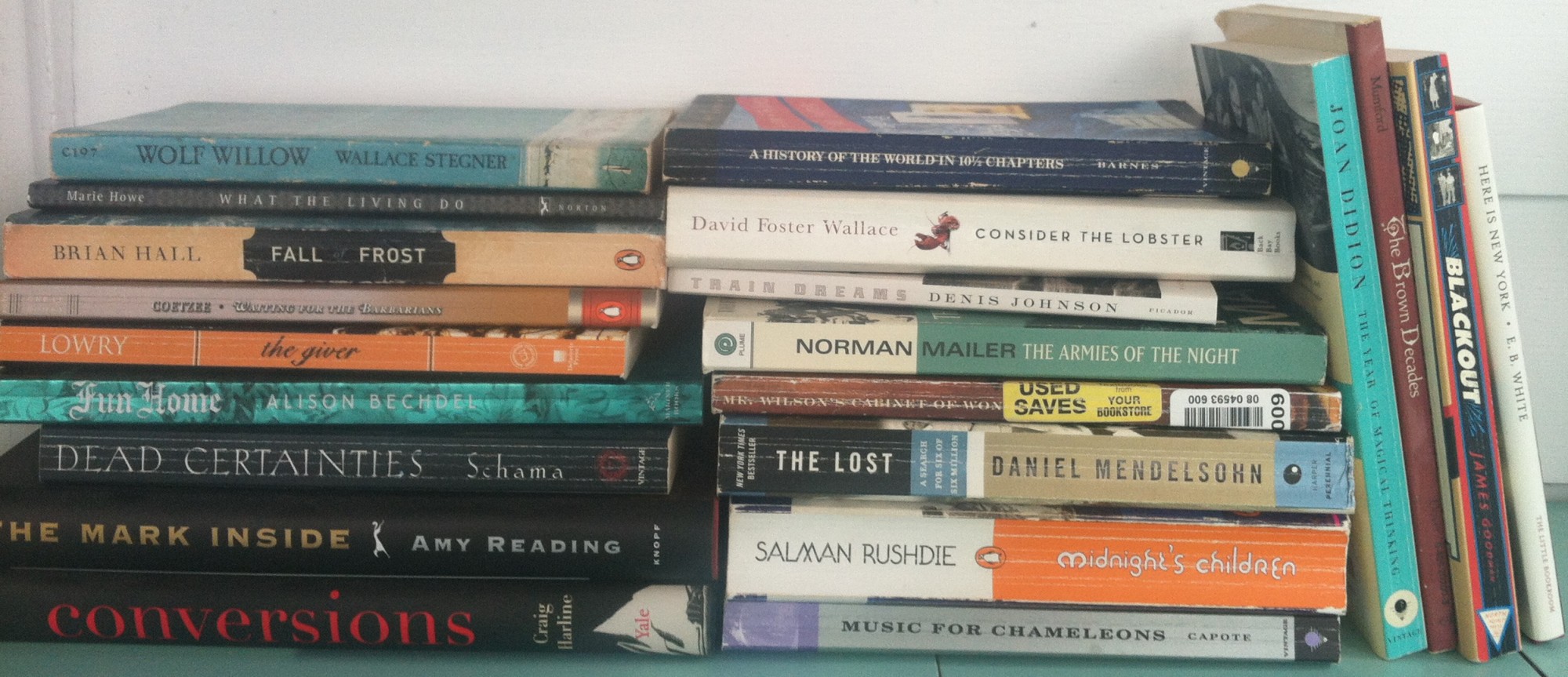Wed. 1/22: Discussion of Mohsin Hamid’s Exit West at 8 pm at Aaron’s house.
Thu. 2/13: Writing Workshop (time and place TBD).
We are looking for 3-4 volunteers who are willing to share a short piece (max. 1200 words) to discuss.
The pieces can be anything: introductions, endings, short scenes, book reviews, blog posts, short articles… as you know, HAW is a safe space where we love and encourage creativity! We would be grateful if you could email us your submissions by Monday, February 3, at bc552@cornell.edu and kju3@cornell.edu. We are very much looking forward to reading and discussing your work!
Wed. 3/4: Discussion with Stephen Vider (8 pm at Aaron’s house).
We are continuing our exciting speaker series about publishing in non-academic venues with a session led by Stephen Vider, Assistant Professor of History and Director of the Public History Initiative at Cornell University. In addition to his research, Stephen has contributed to a range of public history projects. At the Museum of the City of New York, he curated the exhibition AIDS at Home: Art and Everyday Activism (May to October 2017), exploring how activists and artists have mobilized domestic space and redefined family in response to HIV/AIDS, from the 1980s to the present. A Place in the City, a short film he co-directed with Nate Lavey for the exhibition, has since been featured in film festivals and programs in New York, Los Angeles, Toronto, and Istanbul. Vider was also co-curator of the exhibition Gay Gotham: Art and Underground Culture in New York (October 2016 to February 2017) and co-author of an accompanying book, a Lambda Literary Award finalist. He has also published popular articles in the New York Times, Avidly, Time, and Slate, among other places. We are very grateful to Stephen for his availability!
POSTPONED (due to COVID-19): Lunchtime Writing Workshop About Public Writing & Discussion About Disability-Inclusive Teaching with David Perry.
David Perry is this year’s HAW invited speaker and will conclude our speaker series with two events (both taking place that Friday). He has a Ph.D. in Medieval History and is now a columnist for Pacific Standard Magazine and a freelance journalist, covering politics, history, education, and disability rights. You can find more information about him on his website.
Here are the provisional abstracts for the two events:
- Writing Workshop About Public Writing
There’s no such thing as the Ivory Tower. Colleges and universities are not isolated enclaves, and they probably never were. Public engagement is an essential part of the core mission of higher education.
But how do we reach the public? This age of constant media babble and a vast explosion of online and print publications have transformed the traditional pathways of publication, prestige, and engagement. Academics – experts in so many things – need to be part of the conversation. In fact, the variety of media voices has only made expertise and authority more important.
In this workshop, David M. Perry will lead you through the process of getting your voice into the public sphere. He will cover pragmatic topics: the art of the pitch, finding the right venue, managing social media profiles, getting paid, making it count for tenure and promotion, and protecting yourself from trolls and harassment. He will also talk about strategies to simultaneously maintain academic authority and be accessible to the broader public.
Through it all, you’ll be working on your pitches, reading essays that embody important traits, and developing your own ideas.
Over the last five years, David – once a mild-mannered medievalist – has become a columnist for Pacific Standard Magazine, with hundreds of published pieces at venues all over the world, including the New York Times, the Guardian, and the Chronicle of Higher Education. Along the way, he’s learned a lot about how to take academic expertise and share it with a much broader audience.
Going public isn’t easy, but neither is getting into graduate school, getting a PhD, or finding an academic job, so you’ve already traveled some pretty difficult paths. This workshop will start you on your way towards the next challenge.
- Conversation about disability-inclusive teaching
As increasing numbers of undergraduate students seek reasonable accommodations for a variety of reasons, instructors need to understand not just their responsibilities for technical compliance, but think deeply about how to build inclusive pedagogy. The delivery of an accommodation letter should be the beginning of a conversation between professor and student, rather than the end of the matter. In this workshop, we’ll learn how to initiate and sustain this kind of conversation with our students, and why doing so has the potential to positively transform the classroom for everyone, including ourselves. David taught for over a decade at Dominican University, has publicly discussed his experiences as a student and professor with both dyslexia and multiple mental health diagnoses, and has written extensively on disability in higher education and society writ large.
Thu. 5/21: Eleventh Annual History Slam! (on Zoom—link to follow)
Once again, we will conclude our year with our traditional History Slam… now in its eleventh edition!
If you’ve never been to a History Slam before, it’s a chance to read our work out loud to each other and affirm our belief that scholarly writing can be as artful as any other kind of writing. Listening to the way writing sounds is a great way of exploring the question of how your work might have an impact….
It’s also nice just to sit back and appreciate the shape and rhythm of crafted prose.
Readings usually last about 5 minutes, and we ask that you make sure not to go beyond 10 minutes. We usually find a few volunteers to kick us off, and then the format becomes open mic!
